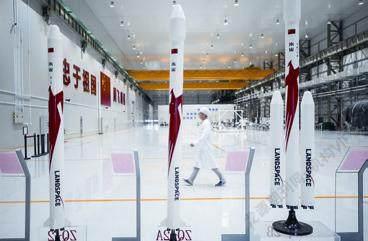SKY ROCKETING
2021-05-19ByYuanYuan
By Yuan Yuan

Chinese private rocket developer, i-Space has successfully completed a test run on a new engine it hopes will power its next test rocket later this year. The breakthrough was made on April 26, just three days before Chinas launch of Tianhe, the core module for its first permanent space station Tiangong.
While visually less spectacular than the launch of Tianhe, the iSpace test run was important for the company as it prepares for its next attempt to send a rocket into orbit. This will be the companys third such attempt since its establishment in October 2016. Its first, in July 2019, was successful; however, its second in February this year, was not.
These attempts have placed iSpace in the national spotlight. Prior to its successful launch in 2019, two other Chinese private rocket developers had tried and failed, making i-Space the first Chinese private space firm to send a satellite into orbit, and marking a milestone for Chinas commercial space industry.
The success in 2019 has instilled confidence in Chinas private rocket developers and in turn helped the company to secure more investment. One year after that launch, another private Chinese company, Galactic Energy, was also able to successfully launch a satellite with its own rocket.
While the companys failed launch in February might have dampened some of the enthusiasm in Chinas private rocket industry, it hasnt hindered the companys preparations for the upcoming launch later this year.
New space players
Aerospace had been a government-funded undertaking in China until 2014, when it gave the green light for private companies to participate in aerospace development. In 2016, the National Development and Reform Commission as well as the State Administration of Science, Technology and Industry for National Defense released more detailed plans for the opening of the industry to private companies.
These plans were a stimulus for rapid development of the industry, inspiring some aerospace experts to establish aerospace firms, with many choosing to start firms focusing on the development of satellites. Satellites need be sent into orbit by rockets, yet currently, the cost of launching satellites is mostly higher than that of developing them, hindering the development of the industry.
Peng Xiaobo, founder of iSpace, which is also known as Beijing Interstellar Glory Space Technology, used to be a rocket designer at the China Academy of Launch Vehicle Technology. He established i-Space after seeing a market for commercial rockets. At that stage, there were already private rocket developers in China, who were working to raise funds and make maiden launches.
